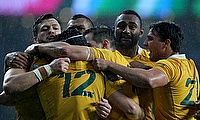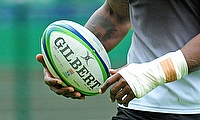Super 15 - Rugby's Elite Tournament
There has long been a debate surrounding which is the elite club rugby competition in the world “ the Heineken Cup or the Super 15. Both undoubtedly have their positives and negatives, but with both competitions coming to critical points in their schedules; the Heineken Cup final and the race heating up for a place in the playoffs of the Super 15, there is perhaps no better time to discuss the merits and drawbacks of these enthralling competitions.
One of the most important differences to note between the two tournaments is that clubs involved in the Heineken Cup arguably have to deal with more demanding interests outside of the cup itself. With the majority of competitors also plying their trade in the Aviva Premiership, Top14 or RaboDirect Pro12, they are also under huge pressure to perform in their domestic divisions, a pressure which is perhaps not magnified to the same extent with South African and New Zealand sides in the Currie Cup and ITM Cup respectively. Southern Hemisphere sides are also comforted by the knowledge that they will perennially be competing in the Super 15, allowing them to field full strength sides throughout the season, a luxury not enjoyed by their Northern counterparts, who must perform well enough in their domestic divisions to once again qualify for the Heineken Cup in their next season. As such, this can often lead to squad rotations when an important domestic fixture is looming, to the detriment of the Heineken Cup itself.
The excitement factor of the Super 15 is also hard to deny, with the expansive style of play and multitude of tries scored through quick hands and incisive angles enough to please all but the most ardent of old forwards. The Heineken Cup also has its' fair share of exquisite back play, look no further than the likes of Gloucester and Leinster, but there is no denying that it is a forwards-driven tournament, in much the same way the Northern Hemisphere is in general, at both club and international level. While the perfect execution of scrums (on the rare occasion they don't collapse) and lineouts are a pleasure to watch for the purists, to many they are a means to an end, a platform for the more 'exciting' aspects of the game. The reliance on an accurate kicking game in the Heineken Cup also divides opinion, with many finding it frustrating to watch, whilst others appreciate its' necessity in a knockout tournament, where a close game decided by the boot and a stoic defence can be just as thrilling as free-for-all of try scoring.
It is almost unfair to pick apart the Super Rugby sides for the formatting of their competition, but the importance of games in Heineken Cup usually far outweighs those of the Super 15 (certainly pre-playoffs that is). One poor performance, or even an awkward bounce of the ball, can spell the end for a side in the Heineken, even in the group stage, a facet of the tournament which makes it so exciting to watch. A similar loss in the Super 15, although far from helpful, rarely rules a side out of title contention, unless coming very late in the season, and takes away some of the anxiety with which we watch the game.
It is not just the importance of each game which promotes excitement in the Heineken Cup, but also the coming together of very contrasting styles of rugby. The free-flowing, almost Southern Hemisphere-style of the Welsh and Irish sides crashes headlong into the forward dominated play of the French and English, and can often make for exhilarating games. There are of course exceptions to the rule; Munster for one would more than match up with any French or English side in the forwards, and this variety just goes to further differentiate the tournament from its' rivals. It would be foolish to presume there is little-to-no difference between the playing styles of the Southern Hemisphere sides, but the differences are less measurable than in the Northern Hemisphere, and games can be more predictable to a certain extent.
For a fast and expansive style of rugby, there is no doubting that the Super 15 is the elite rugby competition in the world. The level of skill displayed by the average player does surpass that on show in the Heineken Cup, and although the Northern Hemisphere is starting to close the gap, a fact which could be attributed to the exodus of players from the South to the North, there is still a significant difference. As is often the case in rugby however, it is not always the most skilful and exciting team which wins a game, and therefore it would be wrong to base an assumption on the premier club competition on this factor alone. The pressure and importance of fixtures in the Heineken Cup certainly makes up for what it may lack in expansive play and high score lines, and surely this should be one of, if not the most, important aspects to consider when judging the merits of a competition.
For me, there is very little difference between the levels of enjoyment I experience when watching both tournaments, with the Heineken edging it in forward play and game importance, whilst the Super 15 possesses the more incisive backs, and as a result, a higher prevalence of 'breathtaking' rugby. The dominance of Australia, New Zealand and South Africa in the international arena is arguably the most compelling evidence to say the Super 15 is the superior tournament, with almost all of their players being drafted from Super Rugby. Similarly, you would struggle to find many players representing the likes of England and France who don't also play in the Heineken Cup, and their fortunes on the international arena have waxed and waned over the years. This is a criticism which is perhaps more suited to be levelled against the domestic divisions in the Northern Hemisphere, but the style of play, which Northern Hemisphere sides are often admonished for when playing against the Southern Hemisphere, are certainly propagated within the Heineken Cup.
Perhaps the only way to ultimately solve the argument would be to devise a way in which the champions of both the Heineken Cup and Super 15 could play against each other on a date which is fair to both teams and at a neutral venue. It is certainly not a possibility in the near future, but as support grows for a global rugby calendar, it is certainly no longer a ridiculous suggestion.








